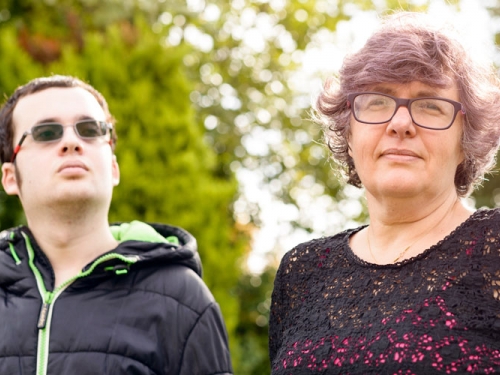What is NF?
NF is the group name for Neurofibromatosis Type 1 (NF1), NF2-related-Schwannomatosis (NF2) and Schwannomatosis (SWN).
All of the conditions cause nerve tumours, and all involve health complications.
These tumours are usually non-cancerous (benign). They can be internal, external, big, or small. Sometimes they cause no harm, and sometimes they can provoke complications.
NF is indiscriminate; it affects all races, ages and genders equally. It is a dominant genetic condition, which means that it can be passed on in families from one generation to the next through genetic inheritance. There is a 50% chance that someone with NF may pass it on to their children.
Similarly, about half of NF cases recorded have no previous family history of the condition. In other words, it has occurred totally “out of the blue”. People who are born with NF with no family history are considered to have “spontaneous gene mutation”. Putting it simply, NF result from a “spelling mistake” in a person's genetic make-up.


NF is an incredibly variable condition and might vary from one person to another even within the same family. Some people may be affected very mildly and have very few health complications. Others may have many more complications, or more serious complications that can seriously impact daily life, and restrict what they can do.
With a condition that varies so much, it is important to learn some basic facts about nerve tumours, and to understand when you need to seek help from your doctor.
This is a large part of why Nerve Tumours UK exists; to support people with NF, and to help you manage your condition and live your best life.





